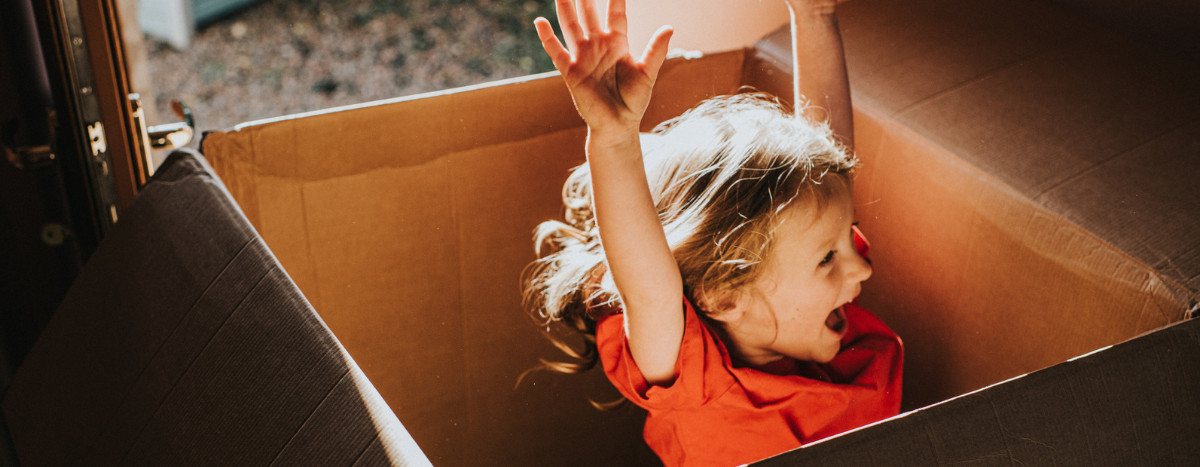Life Insurance
Lump sum payment if you were to pass away or are diagnosed with a terminal illness.
AIA Vitality NZ - 5 min read
13 October 2021
They’re active, creative and playful, and they know how to have fun. Here are a few things kids can teach us about living in the moment.

In our busy, stress-filled, serious adult lives, it can be easy to overlook a massive source of inspiration for how to live well: kids.
From being endlessly active, explorative and creative to living in the moment and going about their daily business – with absolutely zero judgement or expectation – there’s a lot we can learn from the way kids approach this whole life business (and you don’t need to be a parent to learn these lessons either).
School’s in, folks. Here are nine important lessons kids can teach us about how to live life to the fullest.
They’ll welcome anyone to play, share lunch, or sit and draw, and are often better than adults at noticing someone who might be feeling excluded. What can we learn from this? Letting go of judgemental thoughts may result in lower levels of depression, anxiety and stress-related illness.
While they might ruminate on something that happened earlier in the day, kids rarely regret past actions, or worry about the future. They are always right here, right now: living their best lives on the swings, drawing a picture of a dragon on a skateboard, or making a house for their new pet snail in a Tupperware container. Studies show that when we’re present and in the moment, we’re happier, more optimistic, and able to live life more fully.
If children don’t understand something, or something doesn’t make sense, they’ll ask questions until they can figure things out for themselves. Asking questions is an important life skill; it makes us more open, as we’re not simply accepting what we’re being told. It helps us learn about things we may not understand. And it enables a stronger connection with others, allowing us to find out what’s important to friends, family and colleagues.
If something’s worrying them, like the realisation that chicken nuggets might actually be made of chicken, they’ll generally seek some input from an adult to help them figure things out. Kids also tend to say everything that pops into their heads, which helps them process information. As adults, talking through problems is just as important. Having a conversation with a trusted friend may help release negative feelings, or solve an issue that might be bothering you. If you don’t have someone you can talk to, try a confidential telephone counselling service.
There’s very little bravado with children. If they’re scared of the dark or a monster under the bed, they’ll let you know. Vulnerability is an important trait to foster, as it can help people become more compassionate and connect with others.
Play is almost a full-time activity for kids. They climb trees, get dirty, put on performances, draw pictures, sing, dance, build towers out of tissue boxes and forts out of sheets. They call their friends and say ‘Mum says you’re allowed to come over for a play!’. It’s important for kids to play, but it’s just as important for adults, and may reduce stress, stimulate your mind, boost creativity and aid in problem solving.
They run, skip, jump, hop, roll because they feel like it, not because they feel like they should (like grown-ups might with, say, going to the gym). Adults should listen to their bodies in the same way: get up and stretch when you’ve been sitting for too long, go for a walk when you’re feeling foggy, have a big glass of water when you’re thirsty (over soft drink or juice), or eat a nutritious – and colourful – meal when you’re hungry.
Have you seen that clip of the kid getting a banana for Christmas? He is OVER THE MOON about it!! There are so many benefits to letting ourselves experience joy; studies show we’re more likely to make better life choices, have less stress and pain, and have stronger immune system.
They don’t hold grudges. They might be sad and cry and sniffle for a while, but they learn to move on from things, like not being allowed to have cake for dinner or having to get in the bath, pretty quickly. Holding grudges can be pretty detrimental to our mental health; they can make us angry and unforgiving, make us feel anxious or depressed, and can lead to feelings of disconnection to friends and family. Forgiveness and the ability to move on, on the other hand, may result in healthier relationships, improved mental health, and less stress.